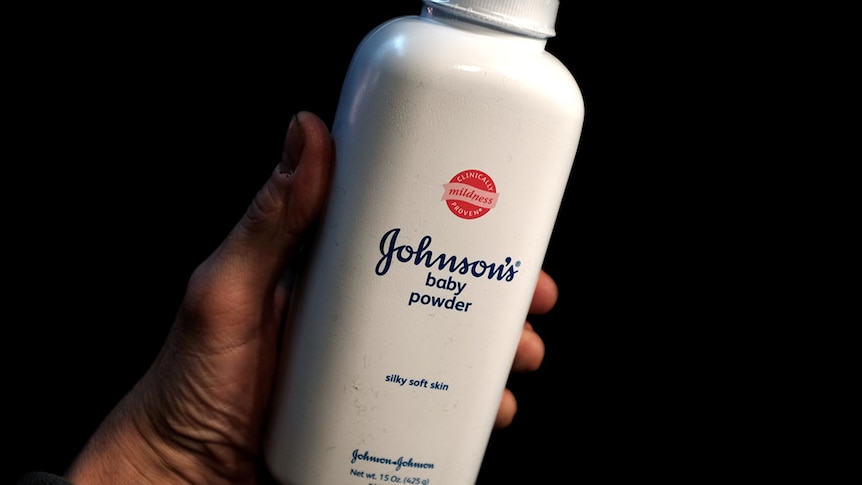Johnson & Johnson has announced it will stop selling talc-based baby powder in Australia in 2023, as it transitions its popular, but controversial, global product to a cornstarch base.
Key points:
- The company said the change was part of a “worldwide portfolio assessment” of its products
- The company faces about 38,000 lawsuits from people who claim the talc caused cancer
- Experts say the evidence available to prove that link is “far from established”
In a statement to the ABC, a company spokesperson said while its talc-based range would be discontinued globally, cornstarch-based powder was already being sold in Australia.
“As part of a worldwide portfolio assessment, we have made the commercial decision to transition to an all corn starch-based baby powder portfolio,” it said.
The move comes two years after it ended US sales due to thousands of consumer safety lawsuits.
Johnson & Johnson said the lawsuit had failed in the wake of “misinformation” about the product’s safety.
The company faces about 38,000 lawsuits from consumers and their survivors who claim the talc-based products caused cancer, due to contamination with asbestos which is a known carcinogen.
Johnson & Johnson has always denied the allegations and said decades of scientific testing and regulatory approvals have shown its talc to be safe and asbestos-free.
Experts like Professor Bernard Stewart from the Cancer Council have said the current evidence that talc-based powders caused cancer was “very slight” and “far from established.”
A family-friendly brand since 1894
Sold since 1894, Johnson’s Baby Powder became a symbol of the company’s family-friendly image.
But talcum powder has fallen out of favor with parents who are now choosing products that contain other natural ingredients to use on their babies’ skin.
In October, Johnson & Johnson spun off subsidiary LTL Management, assigned its talc claims to it and immediately placed it into bankruptcy, pausing the pending lawsuits.
Before the bankruptcy filing, the company faced costs of $US3.5 billion ($4.9 billion) in verdicts and settlements.
In one case, court records show 22 women were awarded more than $US2 billion.
A proposal by shareholders to end global sales of the talc baby powder failed in April.
An investigation by Reuters in 2018 found Johnson & Johnson knew for decades that small amounts of the carcinogen, asbestos, sometimes presented in its talc products.
Johnson & Johnson has always said its talc products are safe and do not cause cancer.
Reuters/ABC
.
